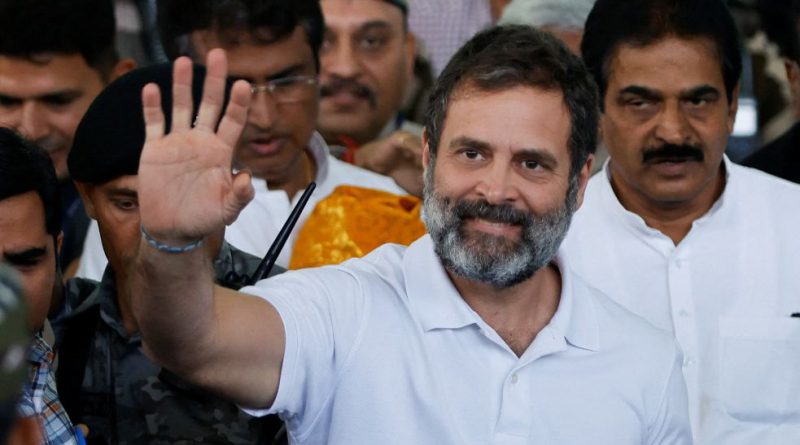Indian court rejects Rahul Gandhi’s plea to suspend defamation conviction
New Delhi (Reuters) – A high court in western India rejected an appeal by opposition leader Rahul Gandhi on Friday to suspend his conviction in a defamation case, quashing for now his hope of returning to parliament and contesting national elections due next year.
Gandhi can now take his appeal to a larger bench of the same high court and then to the Supreme Court, his last option.
Gandhi was convicted in March in a case brought by a Gujarat state lawmaker from the ruling Bharatiya Janata Party (BJP), Purnesh Modi, after comments he made in 2019 were deemed to be insulting to Prime Minister Narendra Modi and other people surnamed Modi.
“How come all thieves have the name Modi?,” Gandhi had asked in an election campaign speech, referring to two fugitive businessmen, both surnamed Modi.
Gandhi, the scion of a dynasty that has given India three prime ministers, was sentenced to two years’ imprisonment but the jail term was put on hold and he was given bail.
Gandhi also lost his parliamentary seat following the conviction since lawmakers sentenced to jail terms of two years or more are automatically disqualified.
They are also barred from running for election for six years after the end of the two-year jail term.
Gandhi has separately challenged the conviction in a district court, which is yet to hear the case.
Justice Hemant Prachchhak of the Gujarat High Court said in his order on Friday that a stay of conviction is not a rule but an exemption to be resorted to in rare cases.
“The refusal of stay of conviction would not in any way result in injustice to the applicant,” the judge said.
“There is no reasonable ground to stay the conviction of the applicant in view of the facts and circumstances of the case.”
There was no immediate response from Gandhi to the verdict.
Congress spokesperson Jairam Ramesh said the judgment would be studied. “The judgement only redoubles our resolve to pursue the matter further,” Ramesh tweeted.
During the hearing of the case, Gandhi’s lawyer Abhishek Singhvi had argued that the crime for which Gandhi had been convicted is not “serious” and not being allowed to contest elections for eight years is “virtually semi-permanent in politics”.
Gandhi is only the second lawmaker in India to be disqualified from parliament after being convicted. The other case was in January this year, but the lawmaker was subsequently reinstated.
Gandhi’s disqualification pushed India’s main opposition parties to sink their differences and join hands to plan a united challenge to BJP in the 2024 national elections.



